Origins - Part 2: Enter Verity Lambert
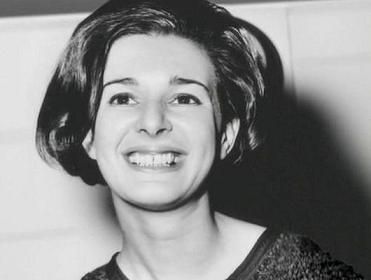 Verity Lambert
Verity Lambert
Verity Lambert came into the BBC not only it's youngest producer but also it's only female one. To help with any inexperience Lambert may have had veteren producer Mervyn Pinfield was assigned to be associate producer. Pinfield was known for having a great technical knowledge and being at the forefront of developments in that area. In fact he invented the 'Piniprint' a forerunner of todays autocues. It was thought that with an effect heavy show like Doctor Who this knowledge would come in useful.
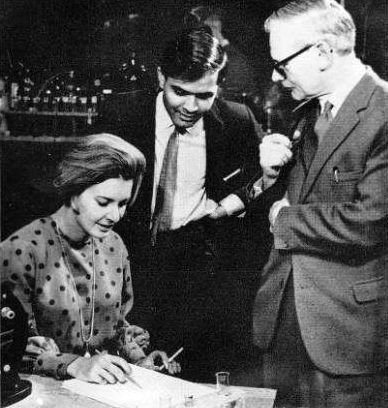 Lambert with Waris Hussein & Mervyn Pinfield
Lambert with Waris Hussein & Mervyn Pinfield
Casting was still to be done and a Doctor needed to be found. David Whittaker suggested Cyril Cusack who turned the offer down, Mervyn Pinfield suggested Leslie French who also turned it down. Meanwhile Verity Lambert was going around turning upside down everything that Rex Tucker had done. In her mind she wanted this show to be unlike anything the BBC had ever done before. Around this time she was joined by director Waris Hussein who would direct the first story and they began looking to cast the show. By the end of June 1963 they had their regular cast, They were....
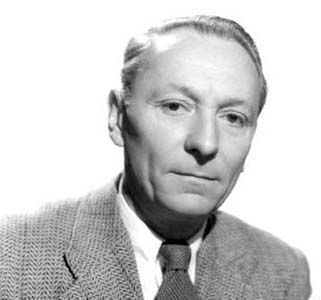 William Hartnell (The Doctor) :
William Hartnell (The Doctor) : Well known character actor with the peak of his fame being in the 40s & 50s. Mostly known for playing either comic characters or villains & Sergeant majors. His two biggest successes were playing the sadistic Dallow in 'Brighton Rock' and Sergeant Ned Fletcher in the army propaganda movie 'The Way Ahead' both with Richard Attenborough . In the late 50s he became known to TV audiences as Sergeant Major Percy Bullimore in sitcom 'The Army Game' from 1957-61. In 1963 he then appeared in the Lindsey Anderson directed movie 'This Sporting Life' playing an old & bitter Rugby League scout named 'Dad' alongside Richard Harris. It was his part in this that had alerted him to producer Verity Lambert of the role of The Doctor, which he was offered and accepted. Retired due to ill health in 1966, had a couple of small parts in the following years and died in 1975.
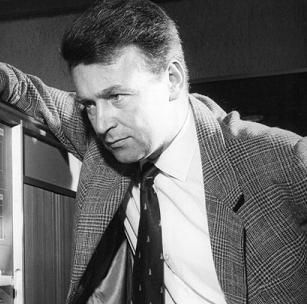 William Russell (Ian Chesterton) :
William Russell (Ian Chesterton) : Was a sought after name on television in the early 60s. He had already appeared in the hugely successful The Adventures of Sir Lancelot for ITV in 1956/57 where he played the lead role. He then followed that up over the next few years by playing the leads in things such as Nicholas Nickelby, David Copperfield & Hamlet. In 1963 his last job before joining Doctor Who was filming The Great Escape with Steve McQueen. After Doctor Who he had a solid career in British television guesting on a vast amount of name shows including a stint on Coronation Street as Ted Sullivan, Rita's second husband. He was last seen on TV doing a cameo in the Doctor Who 50th anniversary biopic 'An Adventure In Space And Time' playing Harry the BBC security guard.
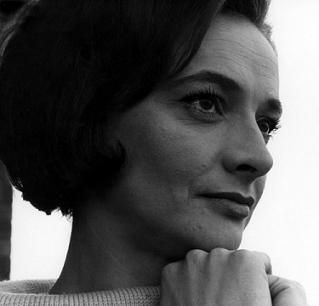 Jacqueline Hill (Barbara Wright) :
Jacqueline Hill (Barbara Wright) : Started her career in the mid 50s in the west end and with guest appearances on popular shows at the time such as Fabian of the Yard and An Enemy of the People.
In 1957 she appeared in the BBC's adaptation of the play Requiem For A Heavyweight which would be directed by Alvin Rakoff, who she would marry the following year. It was during this production of this play that Jacqueline suggested to her future husband that he should cast a unknown Scottish actor in the play because he'd be popular with female viewers.
His name.....? Sean Connery.
She was asked to play Barbara Wright by Verity Lambert who had worked with her at ITV after which the two of them later became good friends. After Doctor Who she took some time out to raise a family she returned to acting in the late 70s and to Doctor Who playing the high priestess Lexa in the Tom Baker story Meglos. She died in 1993.
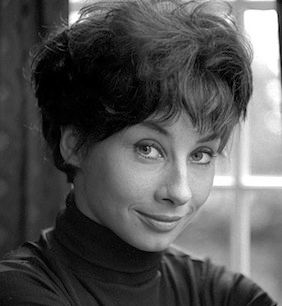 Carole Anne Ford (Susan Foreman) :
Carole Anne Ford (Susan Foreman) : Carole was beginning to make a name for herself in the early 60s. She was a regular on TV appearing on popular shows like the early soap opera Compact, Moonstrike, Dial M For Murder, Emergency Ward 10 & Z Cars. As well as appearing in the movie version of Day Of The Triffids. It was while she was recording a one off guest appearance on a show called 'Suspense' that Doctor Who director Waris Hussien happened to see her on a TV monitor while they were setting up a shot and thought she looked 'otherworldly', he rushed back up to Verity Lambert's office and told her of this girl he had seen who was perfect to play Susan. They went back down to see her and Carole was offered the job on the spot. After Doctor Who she found work difficult to come by although he did appear in a few movies including The Great St Trinian's Train Robbery. Due to a long illness during the 70s she gave up acting and went on to became a highly demanded voice coach. Like William Russell she had a cameo in 'An Adventure In Space And Time' playing a young Doctor Who fan's mother.
During August & September of 1963 work began on fleshing out the rest of the series. Terry Nation a former comedy writer for Tony Hancock was producing a script called 'The Mutants', a Canadian friend of Newman's called John Lucarotti was writing a story about Marco Polo and Anthony Coburn was writing a script tentatively titled the Robots/The Masters of Luxor which ultimatly was not used. The production team were not entirely happy with the stone age script but they couldn't get a last minute replacement and were forced to go with it. The cast began rehearsals for the pilot episode.
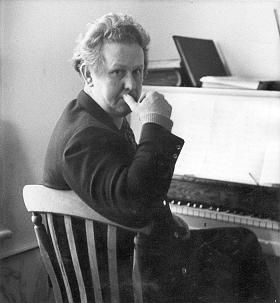 Ron Grainer
Ron Grainer
Meanwhile Lambert was giving thought to the theme tune. She got an idea for the music after watching a French avant garde act called Les Structures Sonores playing glass tubes, she asked head of music Lionel Salter about having them record something but was told it was too expensive. Salter suggested she use the BBC's own Radiophonic workshop. She told the Workshops head Desmond Briscoe what she wanted and he assured her it was possible. She approached veteren composer Ron Grainer famous for the themes to Steptoe & Son and Maigret who had actually retired at the time from writing TV theme tunes but he was so excited at doing something totally different that he agreed to compose it. Grainer worked alongside Bernard Lodge who was creating the opening titles with a technique called 'Howlaround' by filming a card with the shows name on one camera and then filming the moniter with another camera causing it to feedback and swirl around and ripple.
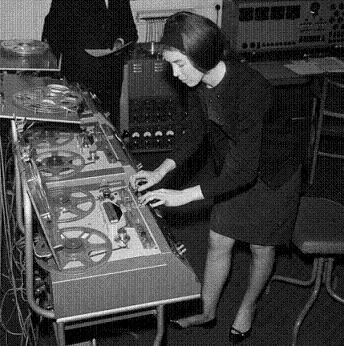 Delia Derbyshire
Delia Derbyshire
He gave his music to Delia Derbyshire at the BBC Radiophonic Workshop who realised his score.
On hearing it for the first time Grainer was astonished at what he was hearing and asked Derbyshire if what she was playing him had been written by him. Derbyshire replied "Well, most of it".
Grainer pushed the BBC for Delia to be given a co-credit as the composer of the theme but as she was doing it as a BBC employee of the Radiophonic Workshop it was the Workshop that should get the credit, not Delia herself.
After 50 years of injustice Delia finally got her first credit on Doctor Who for the 50th anniversary special where her original theme starts the episode.
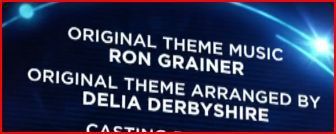 Delia finally gets her much deserved credit during 2013's 50th anniversary special
Delia finally gets her much deserved credit during 2013's 50th anniversary special
The BBC Radiophonic Workshop wouldn't only be responsible for some of the music on Doctor Who, they'd need to make the sound effects too. Brian Hodgson took his house key to the insides of a piano, scraped it up and down, put it through a modulator and made television history.
On 19th September 1963 the pre-filming sequences for the first episode took place at Ealing film studios and 8 days later filming proper took place at the BBC's own Lime Grove studios.
After the show was filmed Newman watched it and decided he didn't like it.
He didn't like the portrayal of Susan manically making an ink picture and ordered her to be more like a normal teenager so the audience could relate. He also felt the Doctor was too bad tempered and wanted his character to be played lighter. He also wanted a line removed about the Doctor being from the 50th Century stating that it was too specific and that the Doctor's origins should be a mystery. There was also the problem of the inner TARDIS doors swinging open and banging closed while stage hands tried to control them throughout the episode. Newman ordered the whole thing to be re-shot on October 18th.
This time the filming went well and Newman agreed the date for transmission, the 23rd of November.
Next time it would be outside events thousands of miles away in Dallas that would jeopardise the shows future.
